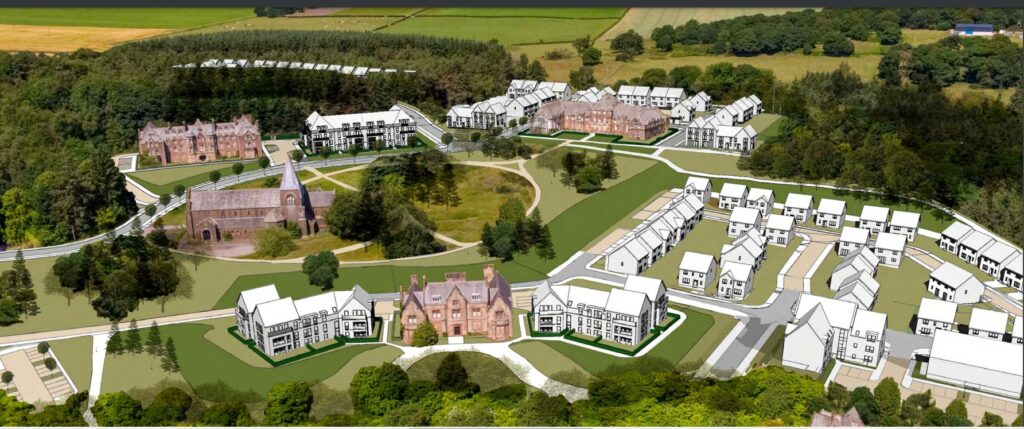Final Bangour plans agreed on listed buildings
Councillors have agreed plans for the conversions of the listed buildings on the site of Bangour Village.
The former hospital buildings and church will be integrated into the new housing development which will provide almost 1,000 homes in West Lothian near Dechmont
The only criticism came from councillors who said both council and developers should have considered underground communal bins instead of adopting common practice for flats with bin stores.
Communal bin stores are popular in Europe and in some redeveloped city sites in the UK where large underground bins which are emptied by specialised vehicles replace multiple and unsightly communal bins stored on the surface. They are difficult and expensive to retrofit but could easily be built into newbuild developments.

The housing plans had been delayed for a month after the last meeting of the Development Management Committee as councillors claimed that they did not have time or information on which to make a decision.
Councillors on the Development Management Committee voted to approve two applications for the final phase of the residential development at Bangour, which would take the total number of homes approved on the site up to 976.
A further four applications were also granted for listed building consent, to allow the future of the historic buildings to be secured by converting them to residential apartments.
The latest consents take the number of homes agreed to 976 and includes all of the retained listed buildings occupying the northerly part of the Bangour site.
The only visible changes to the listed buildings are that some of the chimneys will have to be removed as the internal structural walls are changed. Gable end ones will be retained.
Councillor Tom Conn told the meeting: “We have been on long journey getting to today but the overall plan that has been presented to us retaining the buildings and restoration of the church are the very positive outcomes of the process that we have gone through so I welcome the development in that sense.
“But I have to finish on a negative note and take on board what the developer has said that he has not prepared to reconsider the position on,/ waste collection and disposal. I find that really disappointing particularly given the district heating system on site. For me it falls at the final hurdle.”
Speaking for developers planning consultants, Robert Evans had said that discussion with the council had concentrated on waste management that would be uniform with the rest of the county- using overground bin stores.
Councillor Conn had suggested earlier in the meeting that the provision of large underground bin stores could have been introduced into plans for the flats rather than relying on introducing factoring to control waste management. Large underground bin stores would have encouraged residents to take their rubbish for disposal and recycling, he said.
It was a position which won backing across the chamber from SNP councillors and Tory group leader Damian Doran-Timson who suggested that the council should have done more to encourage the development.
He told the meeting: “There’s massive positives about this. My only negative comment isn’t just aimed at the developer but I think it’s something that the council should have taken forward and looked at better solutions for waste storage.”
He said that given the number of different bins households were required to have: “ its really unfortunate that we haven’t demanded a better solution.”
Councillor Pauline Stafford, SNP group depute leader said: “Thanks, I would echo a lot of these points thanks for the extra time and extra detail. It was really helpful for a plan of this size” She congratulated the plan for its commitment to active travel.
She called for future agreement on the siting of affordable housing to ensure that homes are spread through the development unlike some new developments where affordable housing is crammed into one area.
By Stuart Sommerville, Local Democracy Reporter